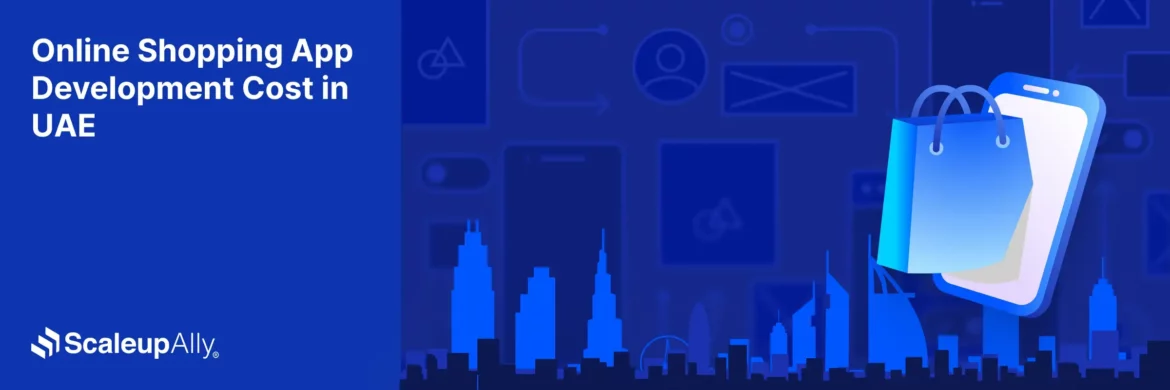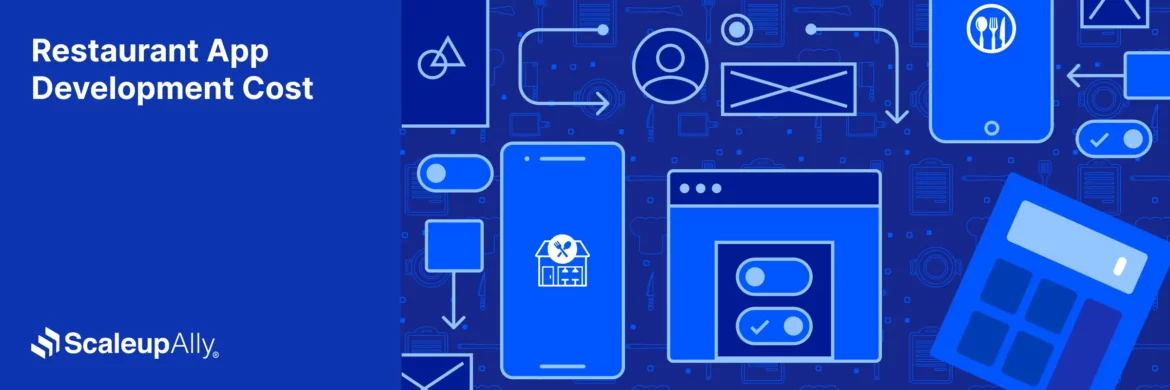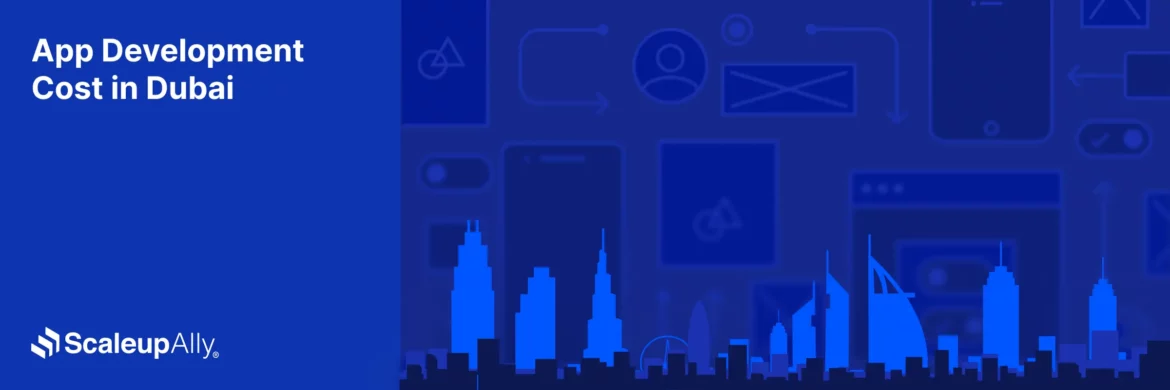
Google Play Store Trends 2025: What Founders Should Know Before Building an Android App
Suprabhat Sen | May 23, 2025 , 13 min read
Table Of Content
The number of apps on the Play Store as of 2024 was about 3.4 million. However, that number has declined to just around 1.8 million.
Google deleted millions of apps (47%) for good reason. The company is on a crackdown on low-quality, spammy apps. In 2023, it started conducting more thorough app reviews and required developers to test their apps with real users for at least 2 weeks.
The company tightened its belt and purged apps with “limited functionality and content,” and announced that it blocked 2.36 million policy-violating apps from publishing to the Play Store.
With all this happening, you might wonder as a founder if there is still room for you on Google Play. There is no doubt that the strict policies introduced by Google will affect many developers. However, if you produce quality apps and content that make you stand out, there’s a lot of room for you. Millions of people still discover and download new apps they didn’t think they needed daily.
Perhaps, Google Play Store statistics might just tell you a story on how to navigate this new shift Google is adopting.
In this blog, we will look at key statistics and trends like app downloads, user behavior, top-grossing apps, and market trends you should know as a founder building your next app. Let’s get started.
Key Takeaways
- Google is aggressively removing low-quality and policy-violating apps.
- Apps that prioritize user privacy and data protection are rewarded with positive reviews.
- 97% of apps are free, with monetization opportunities like Google Play Pass allowing developers to earn revenue based on user engagement rather than solely through ads or upfront purchases.
- Google now requires a mandatory two-week testing phase with at least 20 real users before app launch.
- Despite the challenging environment, there’s still room for innovative apps. Success stories like Ludo King (with over 1 billion downloads) show that talent and cultural relevance can trump location.
Google Play Store: A Quick Overview
By number of apps and downloads, the Google Play Store is by far the largest app store. Following the footsteps of the Apple App Store, which launched a few months earlier in 2008, it didn’t take long for the Google Play Store to catch up to the Apple App Store in terms of raw numbers.
The Google Play Store is where 3.9 billion Android users go to find tools, entertainment, and new digital habits. The Play Store spans every category imaginable. Aside from apps, it hosts games and books as well. The main purpose of the Play Store is to connect people looking for apps and games they’ll love with the businesses that build them.
The Store is becoming more protective of user trust and more demanding of quality. Google is pushing harder for meaningful app experiences that respect user privacy. Founders entering this space are entering a competitive ecosystem where an app that doesn’t offer users any quality experience receives poor reviews and ends up getting deleted on the platform. On the other hand, those who understand what the platform rewards, penalizes, and what users genuinely want have the chance to break through.
Key Google Play Store Statistics to Watch Out in 2025
We have collected key Google Play Store statistics to provide you with some insights on how you should navigate Android app development and deployment in 2025.
1. 46% of Apps Removed from the Play Store in 2025
Earlier in March this year, the Play Store was impacted by a massive ad fraud that tricked users into downloading apps disguised as genuine popular apps. These apps ran recurring ads that made it difficult for users to delete. This spam generated tons of revenue for the fraudsters. Their actions impacted over 56 million downloads that spanned across 180 apps.
Google tried to fix this by sending out security patches, but all that was in vain. The only way to practically fix this issue was by deleting the apps that caused it.
Due to the ad fraud, among other breaches by app developers, founders should expect to face stricter app store policies. The best way to avoid this is to ensure high-quality code and UI/UX standards, and to also avoid aggressive monetization tactics or misleading practices.
2. Over 2.36 Million Apps Blocked for Policy Violations
Another Google Play Store app statistic you should know is that over 2 million apps got blocked for policy violations. Many apps were found collecting personal data without user consent. Global scrutiny from governments (especially in Europe and India) left Google no choice but to tighten app store governance to prevent harm, misinformation, and anti-competitive practices.
The company is now favoring developers with better track records, consistent update cycles, and full transparency in disclosures. Apps lacking these “trust signals” often get rejected. Keep this in mind while building your next app.
3. Global App Releases Up 7.1% Year-Over-Year
Despite the significant app removals, new app releases on the Play Store increased by 7.1% globally based on data from app figures. Google’s mass removal of low-quality, non-compliant, or abandoned apps in 2024 opened up more visibility and shelf space for new developers.
The enforcement of stricter and more transparent app review processes has restored confidence among serious developers. Previously, high volumes of spammy or cloned apps crowded the marketplace and made it harder for quality apps to get noticed. The cleanup rebalanced this, which encouraged a new wave of developers to publish more intentionally crafted apps.
4. Google Play Pass Expands to 100 Countries
If you love games, then you love Google Play Pass. Since its launch in 2019, beginning with the US, the service is now available in 100 countries. More subscribers from its base countries can now binge-play without ads at a low cost per month.
For founders, this means new monetization opportunities since Play Pass allows developers to earn revenue based on user engagement rather than relying solely on ads or upfront purchases. The dependency on ads, which are increasingly regulated and sometimes viewed as intrusive, can now be avoided. This is also a chance to generate passive income if users spend time in your app through Play Pass.
5. Ludo King Surpasses 1 Billion Downloads
This is a game developed by Gametion Technologies based on the ancient Indian board game Pachisi. It succeeded in India and exploded globally across South Asia, the Middle East, Latin America, and parts of Europe. This is a historic milestone for a Made-in-India mobile game.
It places Gametion among an elite group of developers globally since only a tiny fraction of apps on the Play Store ever reach 1 billion installs, let alone apps developed outside the US or China. If you are a founder in emerging markets, what this Google Play Store statistic is telling you is that talent and cultural relevance matter more than location. You can now build global hits from local inspirations.
6. Obfuscation Usage Increased by 13% Since 2016
A study analyzed over 500,000 Android apps and revealed a sharp rise in code obfuscation by up to 13% between 2016 and 2023. This trend is expected to intensify into 2025, driven by both legitimate and questionable motives. Tools like ProGuard, R8, Allatori, and DexGuard are increasingly used to hide logic, APIs, or even malicious activity.
Obfuscation is the practice of deliberately making software code harder to read by scrambling class names, hiding logic paths, or encrypting key methods. It can serve multiple purposes, including protecting intellectual property (IP), preventing reverse engineering, or securing proprietary algorithms in fintech, AI, or healthcare apps, and also hiding spyware, trackers, malware routines, or bypassing policy scanners during app submission to the Play Store.
In both cases, obfuscation makes static code analysis tools less effective at detecting what an app is really doing. As a founder, note that overuse of obfuscation in legitimate apps can trigger Play Store policy violations, especially if combined with excessive permissions or unclear data practices.
7. Google Play Protect Scans Over 50 Million Apps Daily
Android ecosystem’s built-in malware defense layer (Google Play Protect) has ramped up to scanning over 50 million apps per day, including those from Google Play and sideloaded sources.
If you’re building or maintaining apps in 2025, ensure that all SDKs used are policy-compliant and actively maintained, implement a Software Bill of Materials (SBOM) to track dependencies, and avoid “gray zone” monetization SDKs because they are the first to get flagged and removed by Play Protect updates.
8. Privacy-Related Reviews Constitute 32% Positive Feedback
An academic study that analysed over 12 million user reviews from the Google Play Store (spanning a decade) uncovered that 32% of privacy-related reviews were positive. This means that users notice, appreciate, and reward apps that prioritize data protection and transparency.
Users are presently bombarded by pop-ups, trackers, and consent fatigue. If your app champions privacy, you will stand out. The research confirms that, apart from users complaining about poor privacy, they actively praise good privacy practices, especially when apps explain why permissions are needed, have a clear privacy policy, and adhere to GDPR/CCPA standards in line with security and compliance trends (e.g., Play Store policies).
9. Google Pay Holds 37.8% Share in India’s UPI Transactions
Google Pay holds about 37.6% of Unified Payments Interface (UPI) transaction volumes in India, second only to PhonePe (46%). Google Pay is a dominant force in India’s digital payment ecosystem, especially on Android, where it’s deeply integrated across the Google Play Store, in-app billing, and merchant payments.
In this environment, UPI has become the de facto payment method with over 117.6 billion transactions in 2023. Google Pay is also the most Android-integrated UPI app.
Google’s stronghold via Google Pay means that developers must leverage Google Play Commerce APIs with local payment flows to capture more Indian users.
10. Gaming Apps Lead in Removals Due to Policy Violations
Approximately 200,000 gaming titles were purged for violating Play Store policies, including issues related to misleading monetization practices, copycat content, lack of policy compliance, and security risks. Gaming is the most downloaded and most monetized app category on Android, but it’s also one of the most exploited.
The main reasons behind the mass removal included cloned or low-effort games with reused assets or gameplay mechanics, malicious ad SDKs, excessive ads, and hidden data harvesting, Apps targeting children without meeting Google’s strict Family Policy, among others.
The purge disproportionately affected indie developers using template-based game builders with little oversight. This has led to decreased visibility for spammy games, improving quality discovery. Going into 2025, you must prioritize compliance, originality, and safety.
11. Mandatory Two-Week Testing for New Apps
In a major policy update rolled out in 2024 and becoming standard practice in 2025, Google now requires all new Android apps on the Play Store to go through a mandatory 2-week testing phase with a minimum of 20 real users before the app can be officially launched to the public. It’s a compulsory pre-release requirement for developers who are publishing a new app on Google Play for the first time.
The aim is to combat low-quality apps, spam, and fake listings, encourage meaningful user feedback before going live, and prevent abuse of the app store ecosystem from cloned or AI-generated apps.
The test can either be closed or open, but it must include actual users, not bots, and the app must be stable and usable during the test. Plan your launch timelines with this 2-week buffer in mind and build a pre-launch marketing strategy to recruit 20+ test users early.
Emerging Trends on Google Play Store
Apart from the Google Play Store statistics mentioned, trends can also guide your app development process. These trends show shifts being experienced among both users and developers alike.
1. Freemium Model Prevails in App Monetization
Nearly 97% of apps in the Google Play app store are free. The freemium model allows users to download and use an app at no initial cost. Free apps attract more users, especially in price-sensitive markets like India, Brazil, and Southeast Asia, where Android dominates.
The freemium model can be your go-to-market strategy on the Play Store. However, the real game is in converting attention into revenue.
2. Accelerated App Release Cadence
Google Play Store continues to experience a rapid and consistent influx of new apps, with an average of 1,179 apps submitted daily. The app store has significantly lowered the barrier to entry for independent and small-scale developers globally.
While the surge in daily app submissions reflects the thriving nature of the mobile development space, it also raises the bar for success. Quality, creativity, and strategy are the true differentiators in 2025.
3. Regional Shifts in App Category Popularity
User preferences are evolving, with certain app categories experiencing notable declines. For instance, downloads in the ‘Libraries and Demo’ category have decreased by 36.89%. The fall of categories like ‘Libraries & Demo’ shows a clear pivot in user expectations away from static or informational apps, toward high-utility, immersive, and frequently updated experiences. Apps that don’t evolve with user behavior will get buried. In contrast, those who lean into personalization, utility, and cross-platform integration will ride the next wave of Play Store growth.
Conclusion
For building an Android app in 2025, you need to understand user expectations and platform priorities. Google Play Store continues to evolve, and founders who pay attention are far more likely to build apps that last.
Whether you’re still sketching ideas on paper or deep in the development phase, the time to think strategically is now. The questions you ask today around the Google Play Store statistics and trends will shape the success of your app tomorrow.
If you would like some insights on iOS app statistics, check out our companion post: 27+ iOS App Development Trends for 2025.
Frequently Asked Questions
Q: How many apps are on Google Play Store in 2025?
As of 2025, the Google Play Store hosts over 1.7 million apps. While the number fluctuates due to policy enforcement and removals, it remains the largest marketplace for Android applications worldwide.
Q: What is the most downloaded app on Play Store?
In 2025, TikTok ranked among the most downloaded apps on the Play Store globally, followed closely by WhatsApp, Instagram, and Facebook. These apps consistently dominate downloads due to their massive user bases and frequent engagement.
Q: How much revenue does Google Play Store generate?
Google Play Store generated over $50 billion in revenue in 2024, with projections slightly higher for 2025. This includes app purchases, subscriptions and in-app transactions, making it a critical channel for mobile app monetization.
Q: How many people use the Google Play Store?
According to Google Play Store, it has more than 2.5 billion monthly users
Related Blogs

Online Shopping App Development Cost in UAE | Pricing & Factors Explained
Understand UAE online shopping app development costs in 2025 with pricing ranges, influencing factors, hidden fees, timeframes, and expert savings tips.
Suprabhat Sen
Nov 29 ,
13 min read

Restaurant App Development Cost [Breakdown, Key Factors & Pricing Explained]
Discover restaurant app development cost. Explore pricing by complexity, feature-wise cost breakdown, and smart ways to reduce expenses.
Suprabhat Sen
Nov 29 ,
11 min read

App Development Cost in Dubai: Detailed Pricing Breakdown & Cost Factors
Discover app development cost in Dubai — staged price breakdown by app type, key cost drivers, hidden fees, and tips to lower your project spend.
Suprabhat Sen
Nov 29 ,
12 min read


